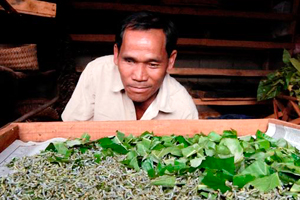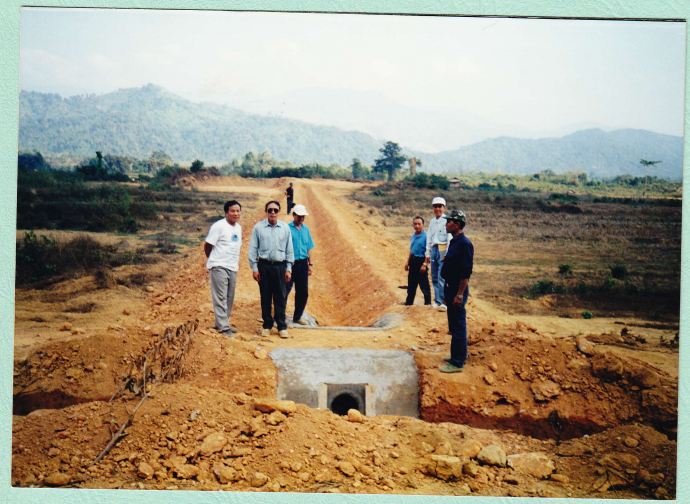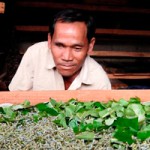
For centuries, Lao silk textiles have been admired for their beauty, quality, and unique designs. The domestic and international demand for textiles has been high. Over the past 25 years, however, the silk industry in Laos has suffered a decline, and the demand has exceeded the supply. The limited supply of domestic raw silk creates a demand for imports from surrounding countries, resulting in higher costs and lower profits for silk weavers. From 1999 to 2006, the Laos Economic Acceleration Program for the Silk Sector (LEAPSS) was funded by USAID and implemented by the Consortium of World Education and World Learning. The project provided training, assistance, and technical support to silk growers in the remote provinces of Xieng Khouang and Houaphan. In addition, the program offered training and networking support to agricultural extension workers, weavers, small business owners, and traders, with a particular focus on women micro-entrepreneurs. The Consortium and its government partner planned for this program to serve as a policy model for future private enterprise development in Laos. The project was active through 2006.
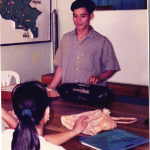
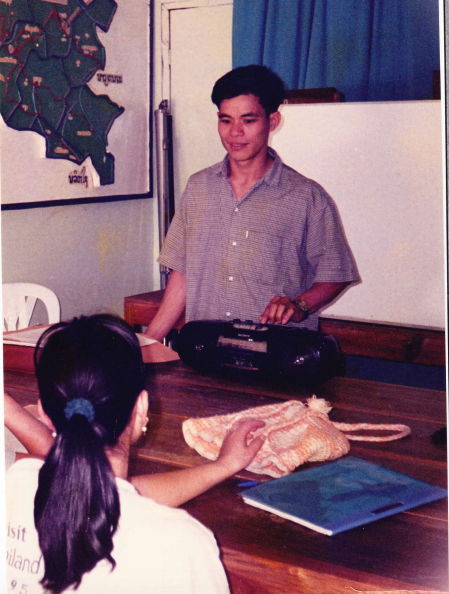 In 1997, to build the capacity of the government of Laos, World Education Laos (then the Consortium) implemented an English Language training program in Xayabouly and Oudomxay Provinces. The Consortium hired two consultants, one for each province, who were based in the provincial government offices and trained government staff in English speaking, reading, and writing skills.
In 1997, to build the capacity of the government of Laos, World Education Laos (then the Consortium) implemented an English Language training program in Xayabouly and Oudomxay Provinces. The Consortium hired two consultants, one for each province, who were based in the provincial government offices and trained government staff in English speaking, reading, and writing skills.
As part of its efforts to strengthen the health sector in Laos, World Education implemented an English Language training program for health professionals in Xieng Khouang Province. Beginning in 1998 with 60 health staff at the Xieng Khouang Provincial Hospital, WEL developed teaching materials and lesson plans with Lao teachers in order to provide health staff with a working knowledge of general and technical English vocabulary. The program eventually expanded to include health professionals in Houaphan Province.
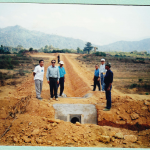
During the decades following the Vietnam War and other various violent tremors throughout Laos, many citizens fled to Thailand for refuge and consequently stayed there for many years while awaiting an uncertain future.
World Education Laos was founded and began its first project in 1992 to aid repatriation efforts with comprehensive integration programs designed to allow Lao citizens to live independently once they have returned to their deserted and often times heavily bombed home territory.
World Education began repatriation services in Luang Prabang, Xayabouly, and Vientiane Provinces, with efforts in health, education, and livelihood components. Health centers, primary schools, and veterinary clinics were all built and staffed with newly trained village health workers, teachers, veterinarians, and livestock experts. World Education also worked with UNHCR to obtain land for rice fields, prepare the land for cultivation, and deal with any civilian or governmental disputes. They trained villagers in paddy rice farming and developed an irrigation scheme.
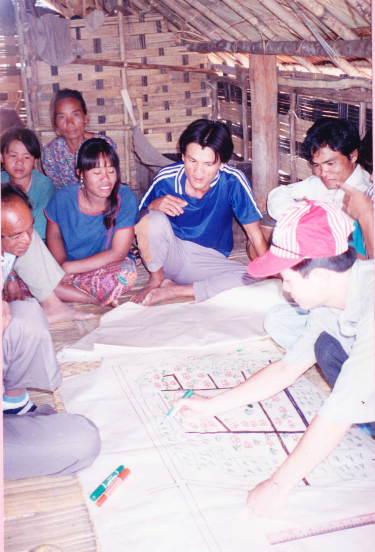
During their time in the Thai refugee camps, many repatriates developed an addiction to opium, affecting their family life, financial stability, and their ability to actively and independently plant their roots once more in Laos. To mitigate this problem, World Education implemented an opium detox program beginning in 1999 in Luang Prabang Province.

